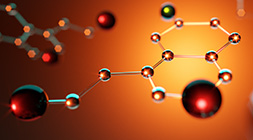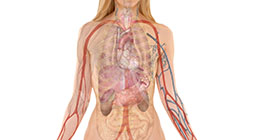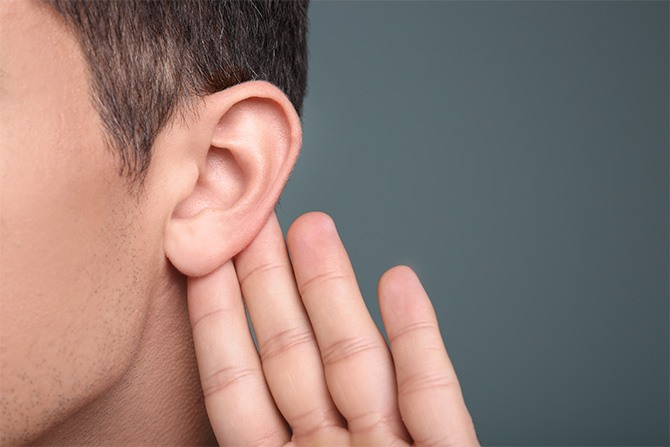Overview
Symptoms
Causes
Prescription
Health Tips
Tinnitus is a common condition that affects almost 36 million North Americans, with its greater prevalence in men, the elderly, and Caucasians. Tinnitus is noise originating in the ear instead of from the outside environment. Seven million people are affected to such an extent that they are unable to lead normal lives. Tinnitus is also a symptom of Meniere’s disease, an inner ear disorder characterised by attacks of severe hearing loss, dizziness or vertigo, leading to pain, nausea, and vomiting.
Tinnitus appears in two forms, subjective and objective tinnitus. In the subjective form, only the person suffering can hear the noise. In objective tinnitus, a very rare form, a doctor will also be able to hear the noise upon examination.
Symptoms
Symptoms may come and go and vary in pitch and severity. Those with tinnitus may hear:
- Buzzing
- High-pitched sound or squealing
- Hissing
- Throbbing
- Ticking
Causes
Technically not a condition itself but a symptom of an underlying health condition, tinnitus may occur when there is injury or damage to the hearing nerve endings in the inner ear, or if there is stiffening of the middle ear bones (called otosclerosis).
Ear infections, wax buildup, age-related hearing loss, exposure to loud noise, medications (such as aspirin, anti-inflammatories, sedatives, antibiotics, and antidepressants), and nutritional deficiencies may all contribute to the condition.
A circulatory disorder or poor circulation caused by smoking, alcohol/drug use or caffeine is often a contributing factor.
Allergies, thyroid problems, diabetes, autoimmune diseases, Lyme disease, Meniere’s disease, presence of a tumor, TMJ (temporomandibular joint dysfunction), and injury to the head, brain or neck are other possible causes.
In younger people, tinnitus is generally a result of loud noise, whereas in older people it is related to hearing nerve impairment. The worse tinnitus is, the more pronounced the associated depression, anxiety, and insomnia.
Objective tinnitus is due to noise created by blood rushing through vessels, or muscles spasms in the ear. Some known causes are multiple sclerosis, atherosclerosis, or vascular deformities.
Prescription for Health
| Nutrient | Dosage | Action |
|---|---|---|
| Vitamin A* | 5000 IU daily | Receptor cells of the ear are dependent upon vitamin A for proper function |
| Vitamin B12, sublingual tablet* | 1000 mg daily | Restores possible deficiency and ensures adequate iron. Iron deficiency is associated with hearing loss. |
| Magnesium* | 500–1000 mg twice daily. If you have kidney dysfunction consult your physician before taking magnesium. | Magnesium deficiency is linked to the development of tinnitus |
| Zinc* | 30–60 mg daily | Zinc is concentrated in sensory tissues of the ear |
| Vitamin D3 | 5000 to 10 000 IU of vitamin D3 daily | Essential for maintaining calcium homeostasis. Imbalanced calcium is indicated in hearing loss. |
| Coenzyme Q10 | 100 to 300 mg daily | Ensures adequate oxygen to delicate auditory hairs |
| Moducare sterols and sterolins | One capsule three times daily | Controls cortisol, reducing interleukin-6, thereby improving calcium homeostasis |
| Ginkgo biloba | 200 mg (standardized to 24 percent flavoglycosides) | Shown to reduce tinnitus and improve circulation |
| Omega-3 essential fatty acids from fish oil | 750 mg EPA
500 mg DHA |
May reduce sensorineural hearing impairment |
| N-acetyl cysteine NAC | 500 mg to 1000 mg | Reduces noise induced hearing loss |
| Lipoic acid | 600 mg per day | Significantly improves hearing |
| Acetyl l-carnitine | 500 mg per day | Prevents noise induced hearing loss. Protects against toxicity from chemo drugs |
*Can be found in one multivitamin formula
Health Tips to Enhance Healing
- Avoid stimulants that cause constriction in the blood vessels such as sugar, caffeine, salt, alcohol, and smoking.
- Confirm tinnitus is not a contributing side effect from any natural or pharmaceutical medication taken.
- Drink plenty of pure, filtered water daily. Water reduces platelet aggregation.
- Eliminate allergies. One study of 23 patients with Meniere’s disease who had failed to respond to standard treatments were then tested for food allergies. When foods that promoted symptomatic ear responses were eliminated, all patients showed a reduction in hearing loss and a reduction of tinnitus.
- Have a physician check blood pressure and rule out other disorders such as anemia, hypothyroidism, hypoglycemia, hyperlipoproteinemia, and inflammation of the inner ear.
- Increase protein intake by using a protein powder.
- Protect ears from loud noises or wear protective earplugs or ear phones if noise exposure is unavoidable.
- Reduce animal fat and cholesterol intake. The increase of blood platelet stickiness may contribute to a reduction of oxygen and nutrients getting to the ear. (See High Cholesterol)
- Reduce stress.
- Rule out heavy metal toxicity, especially aluminum, lead, and cadmium.
- Some people find relief from tinnitus by masking it with low volume radio static or a ticking clock in the background. There are also tinnitus maskers that can be adapted to hearing aids to provide a more appealing sound to compete with tinnitus.











